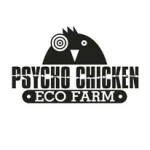
This little guy, identified by the NCSU Extension agents as a crane fly, has a lot of friends living in our hoop house right now. Frequently, when a farmer talks about insects, we expect them to be referring to a pest or problem. A fun fact I learned at a Xerces society beneficial insect class last year is that only 2% of insects are considered agricultural pests… That’s right, when broad spectrum insecticides are applied to the land, 98% of the insects destroyed were not pests, but potential beneficial insects. That level of ‘collateral damage’ is unacceptable.
Our little friend above, the Crane fly, is one of those not considered to be a pest, though its larvae may chew on your production plant’s roots a little here and there, mostly they just consume decaying organic matter in overly wet conditions, so this little fly actually can act as an indicator for me, letting me know when I’ve been watering my hoop house too much!
Chief Seattle said that we are part of the web of life, and what we do to the web, we do to ourselves. Our over use of pesticides is coming back to haunt us, not only through the toxic effects on our bodies, but through the destruction of insects which are at the base of a complex ecological dependence–of which we are a part. Here are two recent articles worth taking the time to read more about the urgent need to remove toxins from agricultural practices:
From the Ecological Farming Association
https://eco-farm.org/news/real-dirt-pesticides-and-bee-death
And from the Guardian




